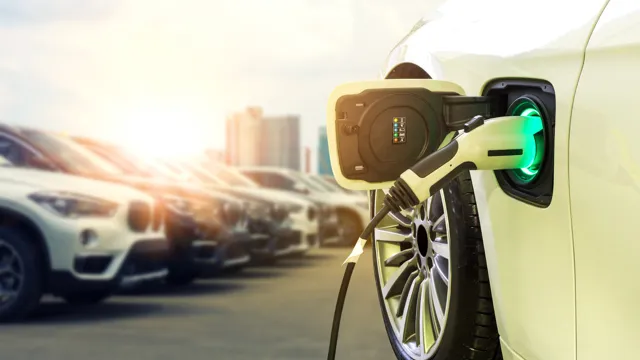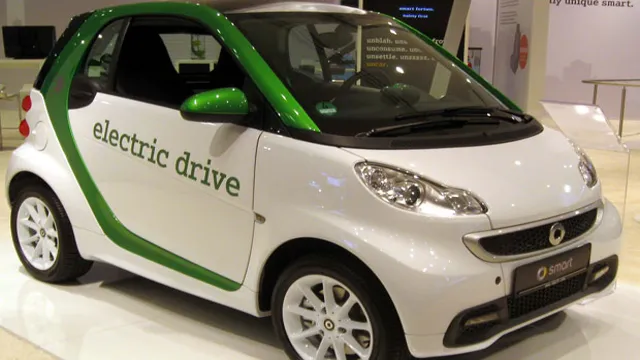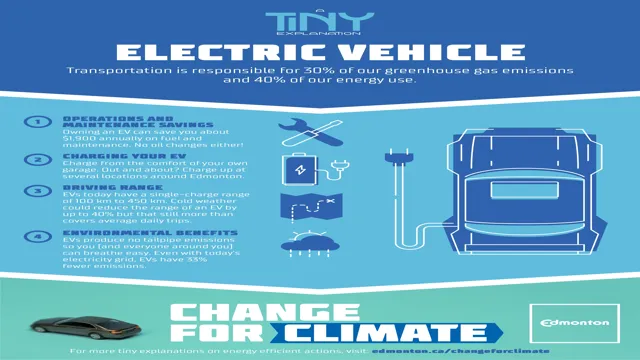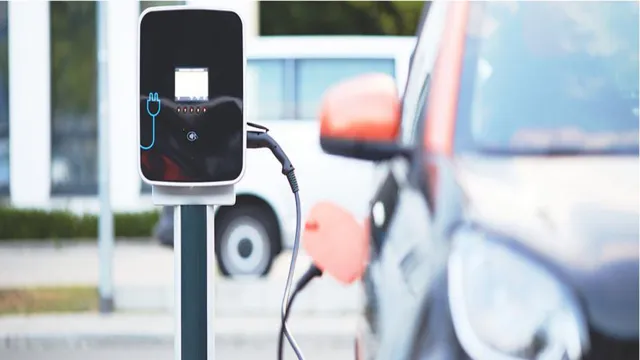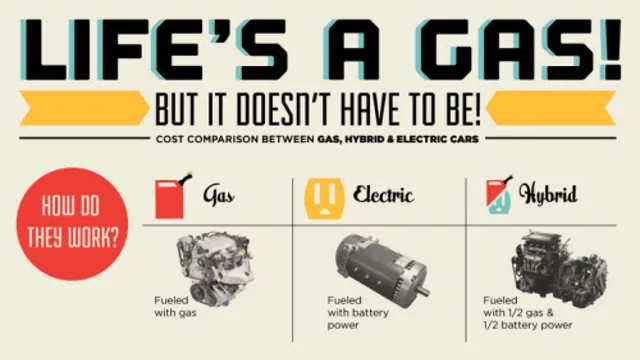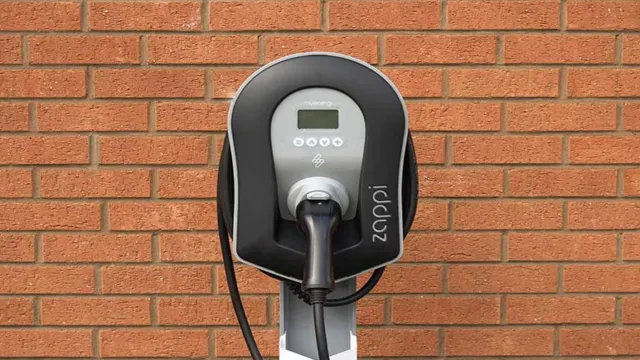Electric Cars: The Sustainable Future – Examining the Costs and Benefits
Electric cars are becoming increasingly popular as people become more concerned about climate change and the environmental impact of traditional gasoline-powered vehicles. However, there are still many misconceptions surrounding electric cars, including their cost and the benefits they offer. This blog will delve into these topics and provide a clear understanding of the costs and benefits associated with electric cars.
Whether you’re considering purchasing an electric car or simply curious about the technology, this blog has got you covered. So, fasten your seatbelts and let’s go on a ride to explore the world of electric cars!
Environmental Benefits
When it comes to electric cars, the environmental benefits are hard to ignore. First and foremost, they produce zero emissions, which means that they don’t contribute to the air pollution problem that plagues many major cities. Additionally, electric cars can help to reduce our dependence on fossil fuels.
Because they run on electricity, they can be powered by renewable energy sources such as wind or solar power, reducing the need for non-renewable resources like oil and gas. Electric cars are also more efficient than traditional vehicles, with much of the energy stored in their batteries being used to power the car’s motors. Over time, this can result in significant cost savings, both for individual drivers and for society as a whole.
So while electric cars may have a higher upfront cost than gas-powered vehicles, the long-term benefits, both in environmental and economic terms, make them a smart choice for anyone who cares about the planet and our future.
Reduced Emissions
Reduced emissions have gained a lot of traction in recent years as the world begins to understand the need for environmentally friendly solutions. The benefits of reduced emissions are profound and include a significant reduction in air pollution, greenhouse gases and subsequently, a decrease in the overall carbon footprint. By using cleaner energy sources, such as renewable energy and electric vehicles, we can create a sustainable future that benefits both present and future generations.
Imagine the reduction of smog on a hot summer day, or the knowledge that we are doing our part in reducing global warming. It may seem like a small step, but even small steps can have a significant impact on the environment. The world is slowly embracing the benefits of reduced emissions, making use of better technologies to change the way we live and interact with the environment.
The adoption of cleaner energy sources will lead to a healthier and more sustainable planet, and we can achieve this one step at a time.

Lower Energy Costs
When it comes to the environmental benefits of lower energy costs, there are several positive outcomes to consider. For starters, reducing energy usage in your home or business is an effective way to decrease your carbon footprint. This directly translates to a reduction in greenhouse gas emissions, which is a significant contributor to global warming and climate change.
Moreover, by reducing your energy consumption, you’re also supporting the transition to cleaner energy sources, such as renewables like solar or wind power. Ultimately, the environmental benefits of lower energy costs are numerous – from cutting emissions and promoting sustainability to preserving natural resources and supporting a clean energy future. By choosing to reduce your energy usage, you’re not only saving money on your energy bills but also playing an essential role in protecting the planet for future generations.
Economic Benefits
When it comes to the costs and benefits of electric cars, there are several economic benefits that should be taken into consideration. Firstly, electric cars have lower operational costs compared to their gasoline counterparts. This is because an EV’s battery operates on electricity and can be charged at home, significantly reducing the cost of fuel.
Additionally, electric cars require less maintenance as they have fewer moving parts, resulting in lower maintenance costs. Furthermore, governments around the world have implemented incentives to encourage the adoption of electric vehicles. These incentives can vary from tax credits to access to high-occupancy vehicle lanes, reducing the overall cost of ownership.
Moreover, with the increasing adoption of electric cars, the demand for electricity will also increase. This will lead to the creation of new job opportunities and investments in renewable energy sources. Overall, the economic benefits of electric cars are significant, making them a smart choice for those who want to save money and contribute to a sustainable future.
Tax Incentives and Rebates
Tax incentives and rebates are economic benefits that individuals and businesses can take advantage of to save money. These incentives and rebates can come in many forms, such as tax credits, deductions, and exemptions. For example, businesses may receive tax credits for investing in new technology or renewable energy sources, while individuals can receive rebates for buying electric or hybrid vehicles.
In addition to providing financial benefits for taxpayers, these incentives and rebates also encourage specific behaviors that are beneficial to the economy and the environment. By offering tax incentives and rebates, governments can stimulate economic growth, create jobs, and promote sustainable practices. Overall, tax incentives and rebates serve as a win-win for both taxpayers and society as a whole.
Reduced Maintenance Costs
When it comes to the economic benefits of reducing maintenance costs, there are a variety of factors to consider. One of the biggest advantages of lowering maintenance costs is the potential for significant savings over time. By investing in high-quality materials and equipment, businesses can reduce the need for repairs and replacements down the line, which can add up to substantial cost savings in the long run.
Additionally, by streamlining maintenance processes and reducing the need for manual labor, businesses can save on labor costs and increase overall efficiency. Furthermore, by prioritizing preventative maintenance and regularly scheduled inspections, companies can identify and address potential issues before they become major problems, thereby reducing downtime and minimizing the impact on productivity. All of these factors together can lead to significant cost savings and improved profitability for businesses of all sizes.
Long-term Savings
Electric cars have become increasingly popular in recent years, and their potential to save long-term costs is significant. While electric cars may have a higher upfront cost compared to traditional gasoline-powered vehicles, their long-term savings make them a smart investment. For one, electric cars require less maintenance and have a longer lifespan, reducing the frequency and cost of major repairs.
Additionally, electric cars are much more energy-efficient and can save on fuel costs over time. When considering the cost and benefits of electric cars, it’s important to note that they also have a positive impact on the environment, reducing emissions and contributing to a cleaner planet. Overall, investing in an electric car can save money in the long run while also making a positive impact on the world around us.
Lower Fuel Costs
Lower Fuel Costs When it comes to owning a vehicle, one of the largest expenses is often fuel costs. However, with the advancements in technology and the rise of electric and hybrid vehicles, there are now more options than ever before for reducing fuel expenses. Although the initial cost of these vehicles may be higher, the long-term savings can be significant.
Not only do electric and hybrid vehicles typically get better gas mileage, but they also require less maintenance and have longer lifespans than traditional gas-powered vehicles. Additionally, with the increasing availability of renewable energy sources, such as solar power, the cost of charging electric vehicles can often be much cheaper than filling up a gas tank. Overall, investing in a more fuel-efficient vehicle can lead to significant savings in the long run, making it a practical and environmentally friendly choice.
Increased Resale Value
Increased resale value is one of the most compelling reasons to invest in long-term savings through home improvements. Upgrades like energy-efficient windows, modern appliances, and updated plumbing and electrical systems not only make your home more comfortable and convenient to live in, but they can also significantly boost your home’s value when it comes time to sell. In fact, studies have shown that homebuyers are willing to pay a premium of up to 3% for homes with energy-efficient features.
So, by making these types of improvements, you’re not only investing in your own comfort and savings, but you’re also investing in the long-term value of your home. And, when it comes time to sell, you’ll be able to command a higher price than you would have otherwise, which can help you recoup some or all of your initial investment. It’s a win-win situation that can pay off in more ways than one.
So, whether you’re looking to make minor upgrades or major renovations, it’s important to keep resale value in mind and choose projects that will provide the biggest return on your investment.
Challenges and Considerations
When it comes to the costs and benefits of electric cars, there are several factors to consider. On the one hand, electric cars are much more environmentally friendly than their gas-guzzling counterparts. They emit little to no greenhouse gases, which helps to combat climate change and reduce air pollution in urban areas.
Furthermore, electric cars are cheaper to operate than traditional vehicles, with lower fuel costs and reduced maintenance expenses. However, there are also some challenges associated with electric cars. For one, they can be more expensive to purchase upfront than gas-powered cars.
Additionally, the availability of charging infrastructure varies depending on where you live, which could limit the range of your vehicle. Finally, the lifespan of an electric car’s battery is still something of an unknown, which means that owners may need to replace the battery at some point, which can be costly. Overall, the costs and benefits of electric cars need to be weighed carefully by potential buyers to determine whether they are the right choice for their lifestyle and budget.
Higher Upfront Costs
When considering implementing a new system or technology, one common challenge that arises is the higher upfront costs associated with the change. While these costs may seem daunting at first, it’s essential to consider the long-term benefits that the investment can bring to your business. By investing in new technology or processes, you can ultimately increase efficiency, reduce manual labor, and save money in the long run.
It’s crucial to do your research and find solutions that align with your company’s goals and budget. Look for ways to save money, such as bundling multiple services, negotiating with vendors or suppliers, and taking advantage of any available discounts. Remember, while the upfront costs may be higher, the long-term savings and benefits can ultimately contribute to the success and growth of your business.
Conclusion
In conclusion, the costs and benefits of electric cars are a delicate balance. While they may be pricier upfront, the long-term financial savings and environmental benefits make them a compelling investment. In the end, it all comes down to whether you prioritize immediate costs or the greater good of our planet.
So go ahead and make the switch to electric – not only will it save you money, but you’ll feel good about driving a car that’s kinder to our planet, too. As they say, it’s not about the destination, but the journey – and with electric cars, the journey just got a whole lot cleaner and greener!”
FAQs
How do electric cars benefit the environment?
Electric cars produce significantly less greenhouse gas emissions than traditional gasoline cars, making them a more environmentally-friendly option.
Are electric cars more expensive to purchase than traditional gasoline cars?
Generally, electric cars can be more expensive upfront, but they can also have lower long-term costs due to factors such as lower fuel and maintenance costs.
Can electric cars be charged at home?
Yes, electric cars can be charged at home using a home charging station or a standard electrical outlet, depending on the car’s charging requirements.
How far can electric cars travel on a single charge?
The range of electric cars can vary depending on the specific model, but many electric cars can travel 100-300 miles on a single charge.

